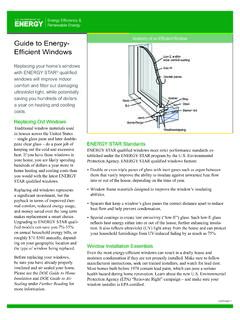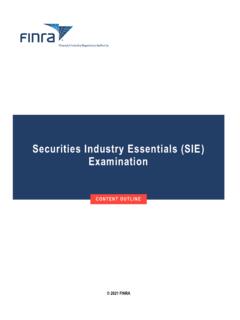Transcription of THE RENTING BOOK
1 THE RENTING BOOK 1 THE RENTING BOOK AUTHORISED BY THE COMMISSIONER FOR FAIR TRADING 2021 THE RENTING BOOK 2 The RENTING Book reflects the law in the ACT as at November 2020. Published by the ACT Government Justice and Community Safety Directorate. Authorised by the Commissioner for Fair Trading under the Residential Tenancies Act 1997. Australian Capital Territory 2021 This work, The RENTING Book, is licensed under a Creative Commons Attribution licence. You are free to re-use the work under that licence, on the condition that you credit the Australian Capital Territory Government as author, indicate if changes were made and comply with the other licence terms.
2 THE RENTING BOOK 3 WELCOME TO THE RENTING BOOK ..7 WHAT IS THE RENTING BOOK? .. 7 IS THIS BOOK FOR YOU? .. 7 IMPORTANT NOTE ABOUT CHANGES TO RESIDENTIAL TENANCY LAWS IN RESPONSE TO THE COVID-19 GLOBAL ESSENTIALS FOR TENANTS ..8 NEW TENANT CHECKLIST ..10 END OF TENANCY CHECKLIST ..11 RETURN OF BOND OPTIONS ..12 AT THE END OF THE TENANCY YOU AND YOUR LANDLORD MUST DETERMINE AN APPROACH TO THE BOND. OPTIONS FOR THIS ARE OUTLINED BELOW.. 12 STARTING YOUR TENANCY ..13 KNOW YOUR AGREEMENT .. 13 FIXED TERM OR PERIODIC AGREEMENT? .. 13 ANY CHANGES TO THE STANDARD TERMS?.. 14 UNITS OWNERS CORPORATION S RULES.
3 16 RENT .. 17 UTILITIES AND ENERGY EFFICIENCY .. 18 PETS .. 19 BOND .. 20 THE RENTING BOOK 4 CONDITION REPORT .. 22 SMOKE ALARMS .. 23 LOOSE-FILL ASBESTOS .. 23 RESIDENTIAL TENANCY DATABASES .. 24 DURING YOUR TENANCY ..26 TENANT S OBLIGATIONS .. 26 RENT INCREASES .. 26 RENT REDUCTIONS .. 29 INSPECTIONS .. 30 REPAIRS AND MAINTENANCE .. 31 MODIFICATIONS (CHANGES TO THE PROPERTY) .. 33 CHANGING LOCKS .. 35 PETS .. 36 SUBLETTING .. 39 SHARE HOUSING ..39 WHAT IF I M NOT A JOINT TENANT? .. 40 DISPUTES AND BREACHES OF THE AGREEMENT ..43 LANDLORD IN BREACH: OPTIONS FOR TENANTS .. 43 TENANT IN BREACH: FAILURE TO PAY RENT.
4 46 OTHER BREACHES BY TENANT .. 48 ENDING YOUR TENANCY ..50 YOUR FIXED TERM AGREEMENT IS ENDING .. 50 THE RENTING BOOK 5 TERMINATING YOUR FIXED TERM AGREEMENT EARLY .. 51 TERMINATING YOUR PERIODIC AGREEMENT .. 54 LANDLORD ENDING A FIXED TERM AGREEMENT EARLY .. 54 LANDLORD ENDING A PERIODIC AGREEMENT .. 55 REQUIREMENTS FOR NOTICES .. 56 LESS COMMON SCENARIOS FOR ENDING AN AGREEMENT .. 56 END OF TENANCY PROCEDURES ..58 FINAL INSPECTION AND CONDITION REPORT .. 58 GETTING YOUR BOND BACK .. 58 UTILITIES AND MAIL .. 61 GOODS LEFT IN THE PROPERTY .. 61 DISPUTES: GOING TO ACAT ..62 PENALTIES.
5 64 NEED MORE HELP? ..65 WHERE TO GET LEGAL ADVICE .. 65 THE ACT CIVIL AND ADMINISTRATIVE TRIBUNAL (ACAT) .. 65 ACT REVENUE OFFICE (BONDS) .. 66 HOUSING ACT TENANTS .. 66 SUPPORT FOR TENANTS IN HOUSING STRESS .. 66 CONFLICT RESOLUTION SERVICE .. 66 REGULATION OF REAL ESTATE AGENTS AND SALESPEOPLE .. 67 THE RENTING BOOK 6 THE RENTING BOOK 7 WELCOME TO THE RENTING BOOK WHAT IS THE RENTING BOOK? The RENTING Book is a guide to rental laws in the ACT. It is primarily written for tenants, to explain their legal rights and responsibilities. It may also help landlords and real estate agents to make sure that properties are managed in accordance with the law.
6 Rental laws in the ACT are set out in the Residential Tenancies Act 1997 (the Act). The Act applies to properties rented from private landlords (whether or not through a real estate agent) as well as to public housing rented from the Government and other forms of social housing. The Act aims to ensure that (among other things) people RENTING in the ACT have stable and secure housing and are protected from unfair practices. The Act requires landlords to provide a copy of this RENTING Book to the tenant (or tell the tenant where it can be obtained) before the tenancy starts. The RENTING Book covers the main issues that may arise before, during and after a tenancy.
7 It is a guide only. It does not cover every aspect of the Act or every situation. The Act is also amended from time to time. You should always read your tenancy agreement closely, check the Act and seek legal advice if you are unsure about your rights or obligations. The Standard Residential Tenancy Terms, which form the basis for all tenancy agreements in the ACT are contained in Schedule 1 of the Act. You can find the Act at the ACT Legislation Register at IS THIS BOOK FOR YOU? The guidance in the RENTING Book applies where a property (or a room in a property) is rented under a residential tenancy agreement (often referred to as a lease).
8 If you are paying rent for your home, you will usually have a residential tenancy agreement, but there are a few exceptions. Agreements to live in a caravan or mobile home in a mobile home park, a room in a club or boarding house, crisis accommodation or student accommodation on a university campus or other educational institution will usually be occupancy agreements. The law that applies to occupancy agreements is different and so the guidance in this RENTING Book will not apply. If you have an occupancy agreement (or if you are unsure what type of agreement you have), you can contact these services for free and confidential advice: the Tenancy Advice Service ACT on 1300 402 512 or or Canberra Community Law on (02) 6218 7900 or Canberra Community Law can provide advice to occupants in crisis accommodation, residential parks (long-stay caravan parks) or social housing (including social housing provided by community housing providers).
9 THE RENTING BOOK 8 The Act (and this RENTING Book) also does not apply to retirement villages, aged care accommodation, or short-term holiday accommodation ( through platforms like AirBnB). IMPORTANT NOTE ABOUT CHANGES TO RESIDENTIAL TENACY LAWS IN RESPONSE TO THE COVID-19 GLOBAL PANDEMIC In 2020 a range of temporary changes were made to the Act to protect tenants impacted by COVID-19 and to assist landlords. As these changes are temporary and rapidly evolving they are not covered in this book. However, readers are advised that some of the information contained in this book may be altered by COVID-19 response measures.
10 For more information on changes to residential tenancy law made in response to the COVID-19 pandemic, see: ESSENTIALS FOR TENANTS Read your residential tenancy agreement before you sign it. Do not sign anything unless you understand what it means. Never sign a blank form even if it looks official. Keep a copy of everything you sign. Read the condition report for the property and make sure you sign it and send it back, otherwise you will be taken to accept it. You have the right to add your comments to the report. Consider taking photos of the property on or soon after the day you move in as evidence of its condition.







